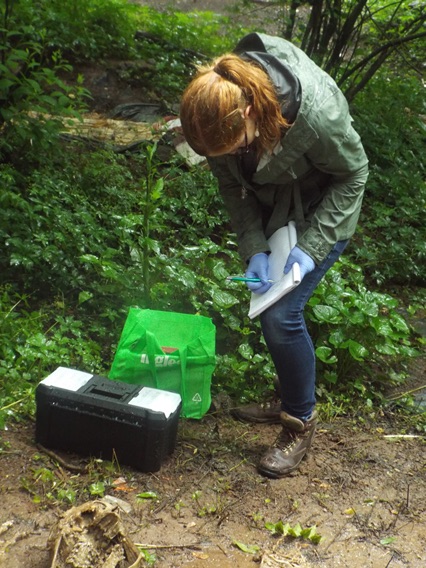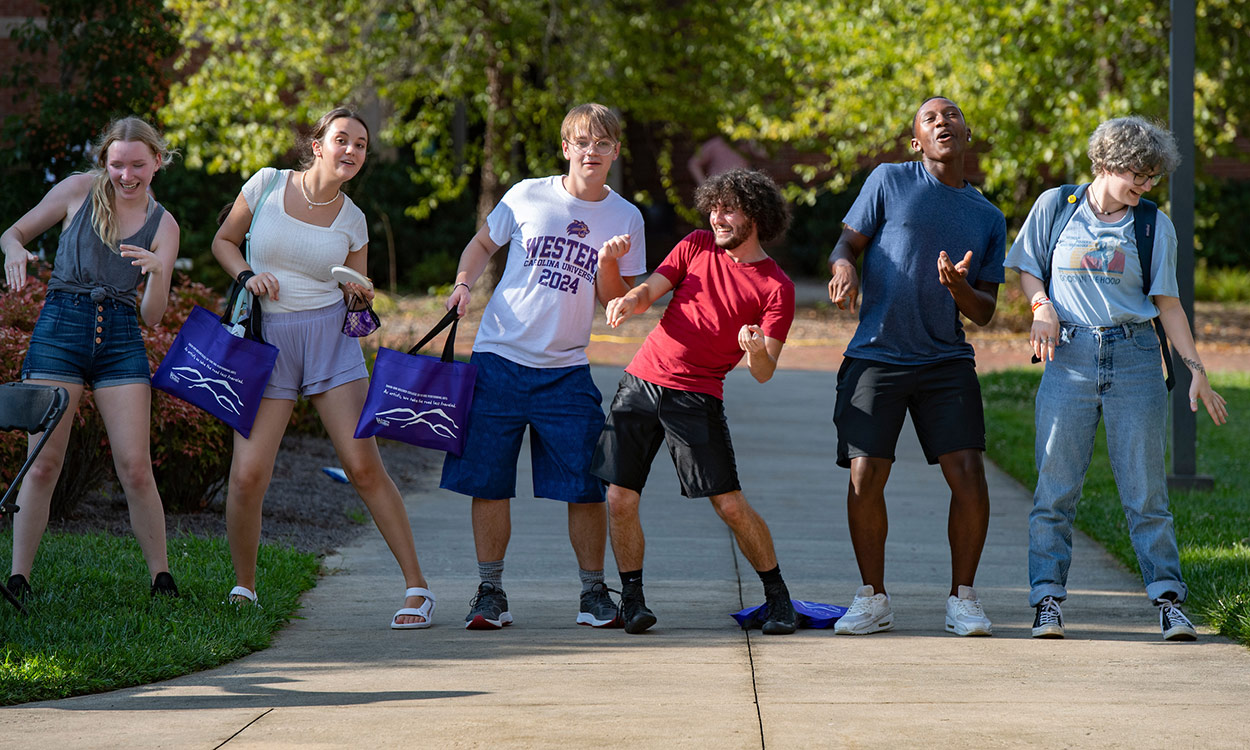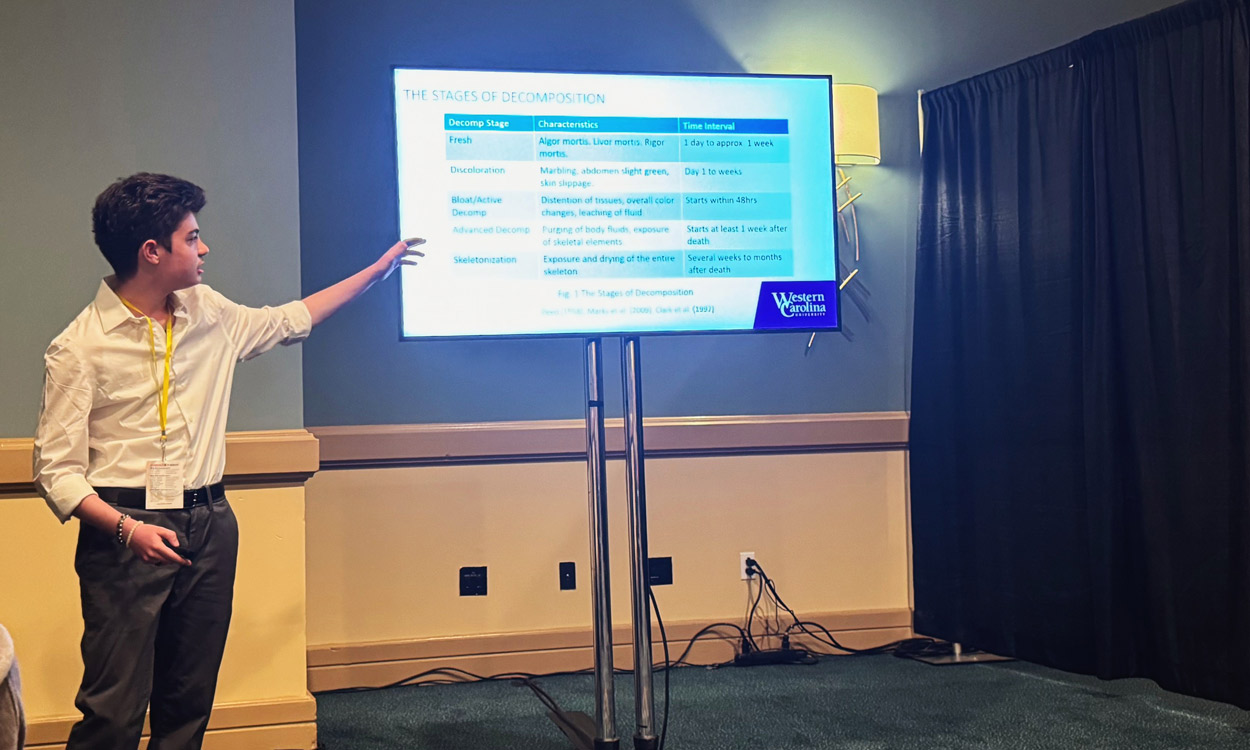Graduate Student Explores Bacterial Communities in Forensic Science

Emily Ashe, a Sylva native, already knew what she wanted to do long before she came to Western Carolina University for her bachelor’s degree.
Knowing that she wanted to have a future in medicine and wanting to stay close to home were key factors in choosing WCU, where she eventually earned her degree in Pre-med Biology. Before starting her forensic pathology program at WCU, Emily said that she took a year off to take a fellowship with the Federal Bureau of Investigations (FBI), where she was part of the visiting scientist program.
This program allowed Emily to not only have plenty of her own research to start out with, but it opened the door for her current research in forensic science. While a visiting scientist with the FBI, Emily worked with the counter terrorism and forensic science research unit. She worked on a research project with her mentor, studying mitochondrial DNA in hair samples, and presented this data at the International Symposium on Human Identification (ISHI).
She said that her research will ultimately contribute to what the forensic science community is currently looking at: how structure and function of bacterial communities are changing, and how post-mortem bacterial communities can help figure out a more accurate time of death. The current strategy for figuring out an accurate time of death, forensic entomology, offers only a large range, typically within two weeks. With her research, Emily said, she hopes to narrow it down to within two days. The Forensic Osteology Research Center plays a big part in her research. She has access to cadaver samples that most other students don’t have, and when they do, it’s only a small amount.
Along with her current research, Emily has had plenty of opportunities to present her research. She has presented at the National Conference on Undergraduate Research (NCUR), the biology department’s seminar series, and has been invited to both East Carolina University’s Research in Progress seminar series and the American Society for Microbiology’s Microbe 2019 convention this summer. She said that everyone’s been super excited in response to her research. It’s a relatively new field of study, she said, so any information that can be contributed is really important, and any new research is necessary to the field. There are usually a lot of really good questions, though she joked that sometimes people are more interested in what happens at the decomposition facilities rather than in the research itself.
Set to graduate in summer 2019, Emily has already started the process of applying to medical school. Over the year long process, she said, she hopes to be an adjunct professor for the biology department at WCU. Additionally, she’s a member of the Graduate Peer Service, and is a member of the Sigma Xi Scientific Research Society, where they’re working to extend their outreach through the angle of the biology department.
Making serious ground in a new field of research makes Emily an important member of WCU’s graduate program.

